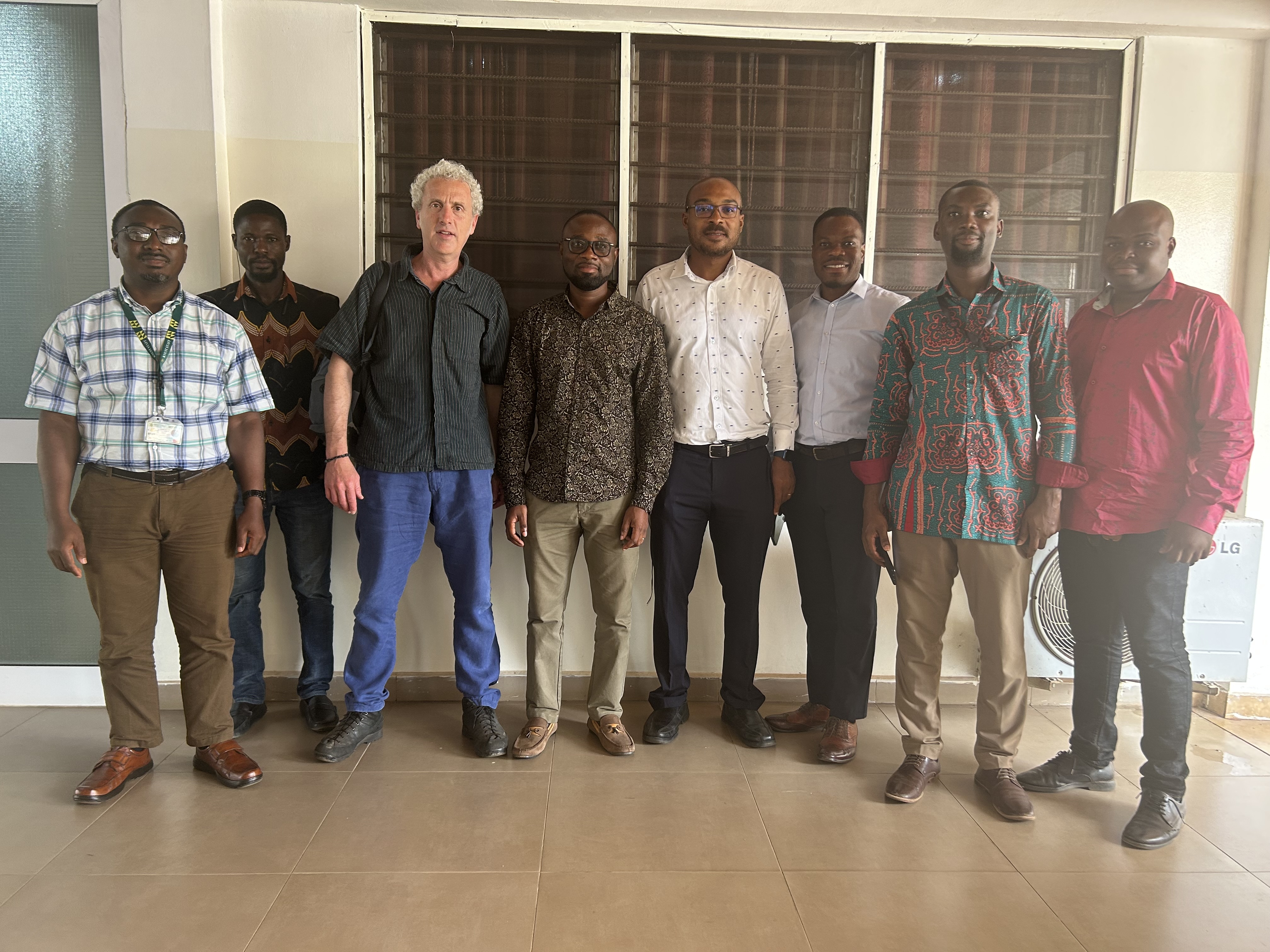UITS hosts Dr. Ariel B. Lindner

It is a well-known position that there cannot be any form of meaningful development without research. With the undertaking of research featuring prominently in the strategic mandate of the University, it behoves on administrative units like the UITS to associate with the culture of research through interaction with researchers with global clout and international experience. In the light of this, the UITS, led by the acting Director and Deputy Director of Systems and Data Management, Mr. Joachim Akute Azu, hosted Dr. Ariel B. Lindner on the 25th May, 2023, for a seminar to share his research and project experience with UITS staff. Dr. Lindner is currently working on a project with Dr. Samuel Asamoah Sekyi, a Senior Lecturer at the department of Molecular Medicine who was present at the seminar. Also present at the seminar were the following: Mr. Kojo Ankar Brewoo(Deputy Director, Software Development), Mr. Richard Ansah( Head of Section, Application Servers Management), Mr. Emmanuel Mfum – Mensah(Head of Section, Application Development), Mr. Francis Akabo(Python Applications Development Lead, Software Development), Mr. Edem Evans Ladzaglah(VoIP Manager, Systems and Data Management), Mr. Caleb Twebeboah (Systems and Data Management Expert), Mr. Samuel De-graft Etison(UI/UX Developer) and many others.
Ariel B. Lindner is a research director at the French National Health and Medical Research Institute (INSERM) where he is the head of the Systems Engineering and Evolution Dynamics Unit at the Paris Cité University. He is the co-founder of the Learning Planet Institute (formerly, the Paris Centre for Research and Interdisciplinarity, CRI) where he leads the Engaged Life Science (ELiS) department dedicated to cutting edge systems and synthetic biology, citizen, and frugal science to tackle health sustainable development goals (SDGs) challenges. He initiated and led learning through research international interdisciplinary graduate and leadership programs and a program to empower schoolteachers to address strengths and weaknesses of their pupils to include their mental health and neuro-developmental profiles. He is a proponent of open and citizen science, leading European projects in this field. Ariel received his M.Sc. and Ph.D. from the Weizmann Institute of Science with residencies at the Scripps Institute (USA) and the MRC (UK). His recent research contributions, published in journals as Nature, Science and Cell include shedding light on bacterial aging, evolution of cooperation, persistence to antibiotics, antibiotic discovery, RNA-based synthetic organelles in bacteria and development of open wet- and hard-ware for infectious disease detection. This work was funded by the Bettencourt Schueller Foundation, MSDAvenir, national and European grants and the NYASAPO Ghana-France grant.
His presentation focused on building a learning society to tackle various challenges of our time. This has led to the development of a projects platform that allows teachers to support their students in project-based learning using a tool, which utilises adapted methodologies and models. This online tool synergises several essential pedagogical approaches like project-based learning, competency-based approach and peer-to-peer learning.
The platform serves as a collation centre for all information on a project where learners have the opportunity to share resources in various formats, document progress and interact with tutors and mentors. Projects on the platform are aligned with learning objective, activities and validation of acquired knowledge as each project allows learners to provide concrete evidence of their learning.
In addition, learners can declare their acquired and desired skills in their academic and personal projects.
The interesting thing is, projects are integrated into an artificial intelligence search system which tags and makes personalised recommendation of projects, profiles of mentors and co-learners.
In his conclusion, the acting Director expressed his delight for such a system and added that the Directorate will work to deploy this platform in KNUST for the benefit of staff and students.